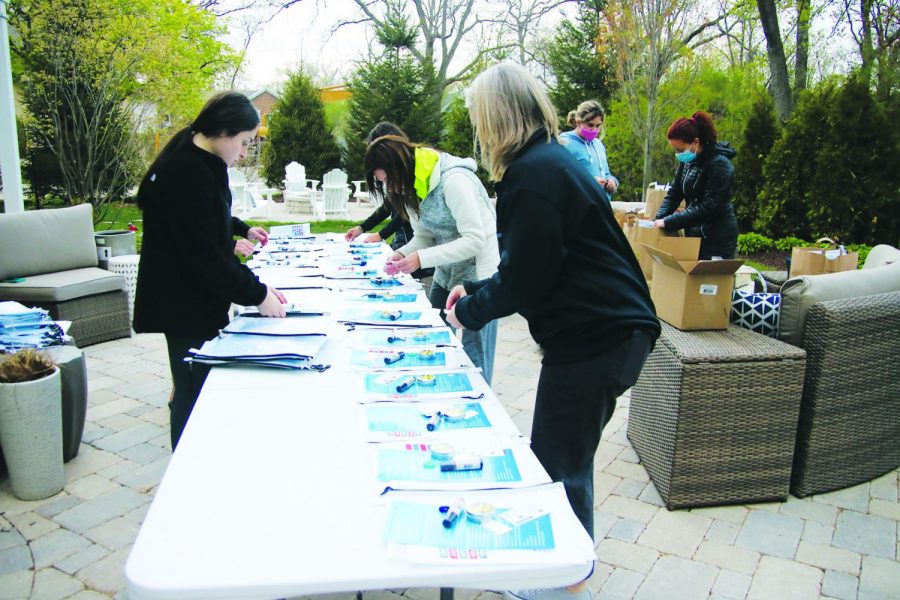CATCH volunteers provide mental health resources
Seven volunteers, including senior Sammie Gelfeld, stood outside in a volunteer’s backyard on the breezy evening of April 27. Standing around fold-out tables, they worked in an assembly line to put items such as mental health decal stickers, hotline numbers, including the suicide prevention hotline, putty, acupressure rings and roll-on essential oils into coping kits. When graduating seniors picked up their cap and gown on May 17, they received the kits that Community Action Together for Children’s Health, also known as CATCH, organized.
“Like ‘Wow, we packed over 500 bags,’ and hopefully that’s 500 people who feel like they’re heard and that something can be done to help them,” Gelfeld said in a video conference.
Amy Oberholtzer, executive director at CATCH, said in a video conference that the coping kits are CATCH’s first big project for Glenbrook North.
“In that kit are tools and resources that we feel as though will allow the students to take care of themselves and take care of their friends,” Oberholtzer said.
Oberholtzer first thought of the idea to create CATCH when her daughter was recovering from mental health challenges. Oberholtzer found herself feeling alone and without a place to turn or knowing how to handle those challenges, she said.
“I called my old preschool playgroup moms together and I said, ‘You know, I think our town, our community, needs a place where people can turn when family members, particularly kids, are struggling with mental illness,’” Oberholtzer said.
In addition to Oberholtzer, CATCH currently has six board members.
Julie Weinberg, vice president of CATCH, said in a video conference that she writes a monthly newsletter that shares details about CATCH’s events, such as its webinars. The newsletter also includes links to CATCH’s latest blog posts and YouTube videos.
“We look at it as a way to spread the word about the services that we provide but also the services that are just available in the community,” Weinberg said.
According to Oberholtzer, CATCH plans to provide educational opportunities about mental health and peer support for parents. It also plans to collaborate with schools and other mental health organizations to destigmatize and talk about mental health.
“If my vision could come true, in its entirety, it would be [that] the community in which I live values mental health and prioritizes it, uses it as a lens to make decisions, parenting decisions, community decisions, decisions at school,” Oberholtzer said.
According to Weinberg, “My hope for CATCH is we continue to grow, that people know that we’re here, that when new families come in, they find us.”
According to Gelfeld, she thinks it is great that CATCH is spreading mental health awareness.
“I think if more people are informed about [mental health], it will be talked about more and you can break the stigma, which is very important,” Gelfeld said.


